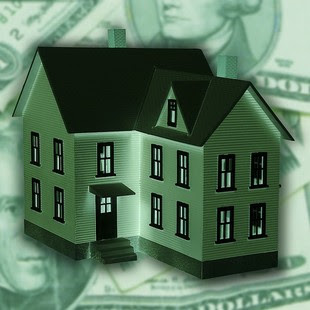The US Federal Housing Administration offers loans that enable individuals to acquire a home with a down payment as low as 3% - a percentage comparatively lower than most limits for regular loans. Thus, the loan program under the FHA - a division of the Department of Housing and Urban Development - is ideal for first-timers and those with limited funding. It should be noted that the FHA insures your loan and does not offer home loans. In case of a default, an insurance fund will cover payment for the lending institution. To do a FHA refinance home loan with bad credit, this aspect can be a real challenge for most people.
An FHA loan applicant should be backed up by a positive credit history, a reasonable income level and adequate cash down payment to close the loan. To qualify under the program, a borrower should also settle closing costs worth about 2%-3% of the house price. This could also include fees for attorneys, title search and insurance, FHA insurance funding, and loan origination.
The borrower's monthly housing cost must not surpass 29% of his gross monthly income to qualify for the loan. Property taxes, mortgage principal and interest and insurance are computed to determine total housing cost. This total housing cost and long-term debt make up total monthly cost, which must not exceed 41% of gross monthly income. Credit card balances, auto loans and other borrowings are included under long-term debt.
These percentages reflect greater leniency on the part of the FHA, as the ceiling for total housing cost under conventional loans is at 26%-28%, while the cap for total monthly cost is at 33%-36%.
Can You Really Get A FHA Refinance Home Loan With Bad Credit?
The agency has been allowing refinancing schemes on insured loans since the start of the 1980s. A "streamlined" FHA refinance covers the lender's underwriting and documentation requirements, and does not imply the absence of costs. Key conditions of a refinance include FHA insurance of the target mortgage, updated payments, and a reduction in the payments made by the borrower due to the refinance. Borrowers must note that a FHA refinance home loan with bad credit also bars any cash take-out on the home loan.
For lending institutions, one refinancing approach they can follow is the "no cost" plan, which does not entail out-of-pocket costs for the borrower but will involve higher loan interest rates compared to a cash settlement of closing costs. The premium from the higher charge will he used by the lender to cover the transaction's closing costs. With a FHA home loan bad credit lender, this can be the factor to approve a loan. With a FHA refinance home loan bad credit option, the lender can also choose to integrate the closing costs with the new mortgage amount, assuming appraisal of a target equity level for the asset. The alternative to this scheme is to exclude appraisal, but this means the original mortgage amount will remain higher than the new mortgage. Insured mortgage programs under the FHA for single families include a plan covering disaster victims; the energy-efficient mortgage program; reverse or home equity conversion mortgage; title I home improvements; rehabilitation mortgage; and a program covering Indian reservations and similar restricted property.
Is There FHA Refinance Home Loan Bad Credit Options For Disaster Victims?
The Section 203(h) program for disaster victims enables the FHA to cover loans by applicants whose homes have been destroyed by natural disasters and are either rebuilding their home or chosen to acquire a new house. The reverse mortgage or HECM, which targets the country's senior citizens, allows the cash conversion of part of the individual's home equity. The federally-insured program is often sought by older Americans to augment social security, cover home improvements and finance medical emergencies. When you are considering a FHA refinance home loan bad credit lender, be sure to have an experienced accountant and attorney explain the details before you sign your refinance documents.
By : Emanuele Allenti





